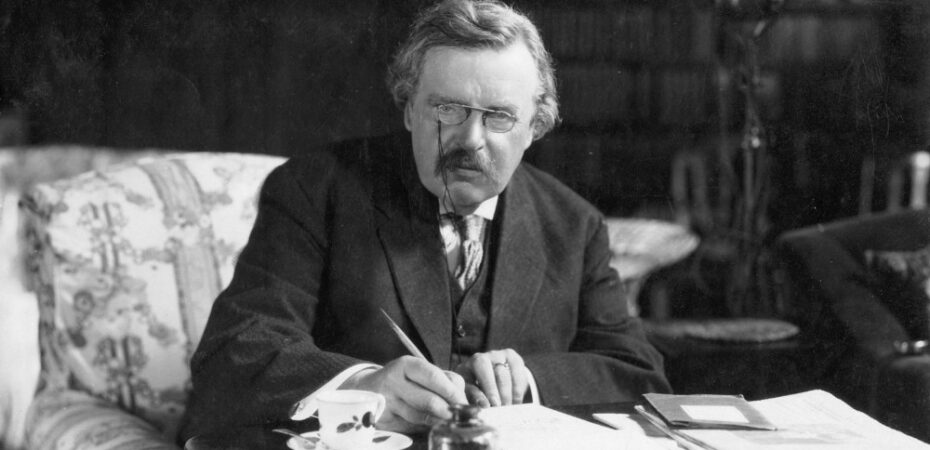A Fresh Perspective on Parish Life
Due to his unique place in the Church, the deacon can offer valuable insight
Father David Scotchie Comments Off on A Fresh Perspective on Parish Life
G.K. Chesterton, reflecting on his jury duty, wondered why we have citizen juries. We train soldiers because they fight better. We train singers because they dance better. We have professional judges, lawyers and policemen. Why not professional juries? Juries illustrate the paradox that the more a man looks at a thing, the less he can see it. The judges, magistrates, barristers, detectives and policemen do not see, Chesterton said, “the prisoner in the dock; all they see is the usual man in the usual place. They do not see the awful court of judgment; they only see their own workshop.” They have gotten used to it.
A jury fresh from the streets sees the court and the crowd. By the fact that its members have not become accustomed to the criminal and police, Chesterton concludes that a jury of ordinary men (and women) is better suited to determine the guilt or innocence of the accused.
The permanent deacon has the same advantage. True, a deacon regularly functions like junior clergy and unpaid staff filling in for the parish professionals. Permanent deacons help with marriage preparation. They run inquiry sessions for those interested in becoming Catholic. Their preaching gives the parish priest a weekend off from the pulpit. From this perspective on deacons, taken to its extreme, a parish would seemingly have no need for permanent deacons if more priests and parish staff were available.
Fresh Eyes on the Parish
The permanent deacon, though, offers something that parish staff and priests cannot. By the fact that he is not professional clergy or paid staff, he can see what the parish staff and priests might not see. Like the 12 men and women of a jury, the deacon brings fresh eyes to the parish.
The deacon is in a position to advise his pastor that the parish RCIA program is falling short; the same two volunteers prepare the non-Catholics apart from any sense of community. The neophytes quickly disappear after the Easter Vigil, never to be seen, even at Christmas. Those interested in becoming Catholic fall through the cracks. The pastor might not want to hear the bad news and the great effort needed to revive the RCIA program. The deacon, though, can see what the pastor might not see, or want to see.
The deacon’s experience in marriage and parenting has more to offer than anecdotes at the ambo. He can empathize with the many families struggling with a sick child, a lost shoe, and hostile in-laws. He knows how financial worries and demands at work can weigh on one’s mind. The deacon sees more than another problem family who won’t get with the program. That some families manage to collapse into a pew on Sunday is a minor miracle.
Not a Parish Professional
The deacon likewise enjoys and must exemplify a special collaborative relationship with church professionals. What makes it “special” is that he is not a church professional. He has a life outside of parish life.
Parish staff and priests are invested in parish life. Their livelihoods and reputations depend on it. Priests have years of seminary training and often advanced degrees. The parish staff has degrees in music, pastoral care, business and theology. They attend diocesan workshops and conferences. Such training is both a blessing and a blinder. Sometimes, “the more a man looks at a thing, the less he can see it.”
Jesus did not choose professionals to be his apostles. Instead, he called fishermen and day laborers. They did not know Scripture and Tradition like the scribes and Pharisees. They did not have influence with the powers-that-be. For something as important as the foundation of his Church, Jesus turned to 12 ordinary men.
FATHER DAVID SCOTCHIE is a priest for the Diocese of Orlando and has served in five parishes. He holds a doctorate of ministry in preaching from the Aquinas Institute in St. Louis and is an instructor in homiletics.
………………………………………………………………………………………………………………………………………………..
COMPENSATION
“A Portrait of the Permanent Diaconate: A Study for the U.S. Conference of Catholic Bishops 2021-2022” reported among permanent deacons who are financially compensated for ministry, one in five is entrusted with the pastoral care of one or more parishes; one in four works in parish ministerial positions; and one in seven works in non-ministerial positions.
……………………………………………………………………………………………………………………………………………….





